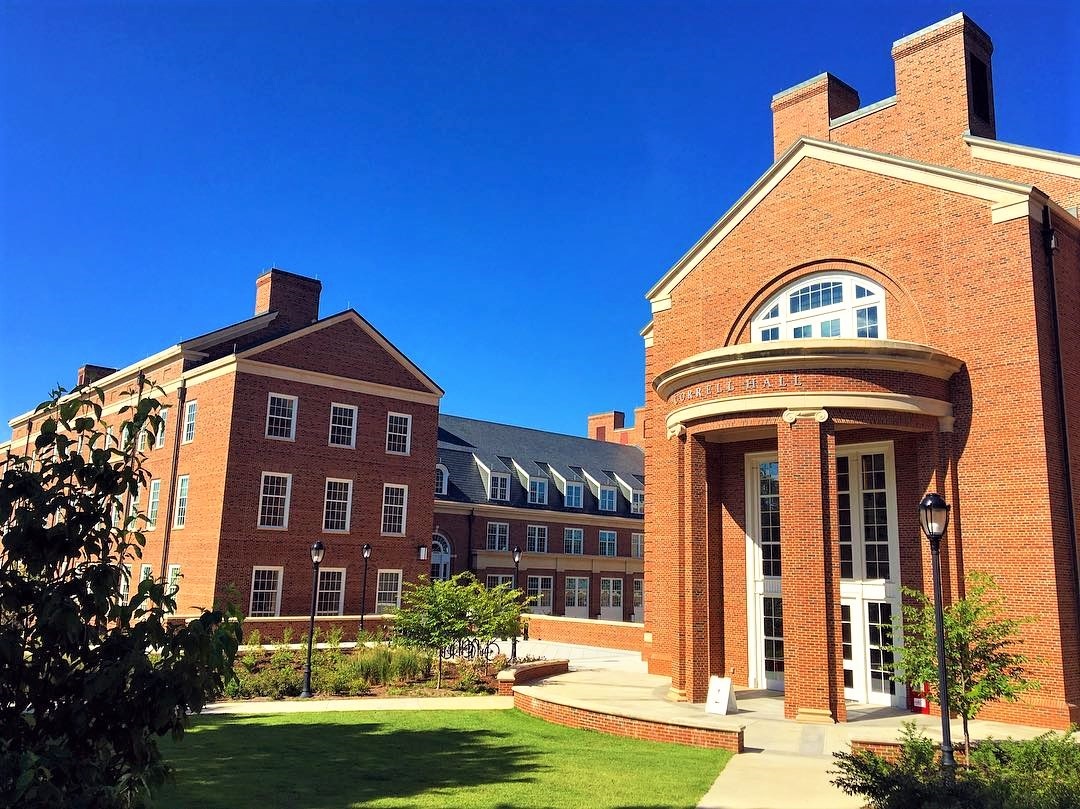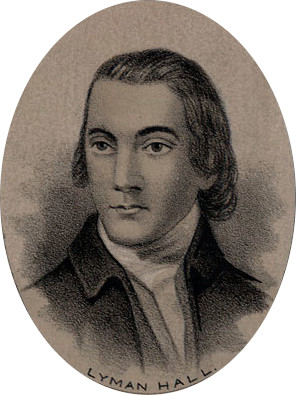|
Fred Bateman
James Fred Bateman, Jr. (1937 – January 10, 2012) was a noted economic historian. He served as the ''Nicholas A. Beadles'' Professor in the Terry College of Business at the University of Georgia. Bateman's main areas of research were US 19th century agricultural and industrial economic history. He served from 1982–83 as president of the Business History Conference and in 2010 he was elected as a Fellow of the Cliometric Society. Selected publications * Jeremy Atack, Atack, J. and Bateman, F. (1987). To their own soil: Agriculture in the Antebellum North. Ames: Iowa State University Press.Bogue, A. G.,(December 01, 1987). Review of To Their Own Soil. Agriculture in the Antebellum North. by Atack, J., & Bateman, F., ''Journal of Economic History'', 47, 4, 1050-1051. * Bateman, F., and Thomas J. Weiss, Weiss, T. J. (1981). A deplorable scarcity: The failure of industrialization in the slave economy. Chapel Hill: University of North Carolina Press. References and notes ... [...More Info...] [...Related Items...] OR: [Wikipedia] [Google] [Baidu] |
Terry College Of Business
The C. Herman and Mary Virginia Terry College of Business is a constituent college of the University of Georgia in Athens, Georgia, United States. The business college offers undergraduate programs, MBA programs, specialized master's programs and doctoral programs. It was founded as the first business school in the American South in 1912. The Terry College MBA Program is often recognized as a top 40 graduate business program and has a selectivity rate of approximately 35%. The Terry MBA is offered as a full-time degree on campus in Athens, as an MBA for working professionals in Gwinnett County and in the Buckhead district of Atlanta, and as an Executive MBA in Buckhead. All of the college's programs are accredited by AACSB International – the Association to Advance Collegiate Schools of Business. History "Next to farming, more men enter business than any other occupation; yet there is not an institution n theSouth...that offers a course for such students." :- Joseph Stewart ... [...More Info...] [...Related Items...] OR: [Wikipedia] [Google] [Baidu] |
University Of Georgia
, mottoeng = "To teach, to serve, and to inquire into the nature of things.""To serve" was later added to the motto without changing the seal; the Latin motto directly translates as "To teach and to inquire into the nature of things." , established = , endowment = $1.8 billion (2021)As of June 30, 2021. , type = Public flagship land-grant research university , parent = University System of Georgia , accreditation = SACS , academic_affiliation = , president = Jere W. Morehead , provost = S. Jack Hu , city = Athens , state=Georgia , country = United States , coordinates = , faculty = 3,119 , students = 40,118 (fall 2021) , undergrad = 30,166 (fall 2021) , postgrad = 9,952 (fall 2021) , free_label2 = Newspaper , free2 = '' The Red & Black'' , campus = Midsize city / College town , campus_size = (main campus) (total) , colors = , sports_nickname = Bulldogs , sporting_affiliations = NCAA Division I FBS – SEC , mascot = Uga X (live English Bulld ... [...More Info...] [...Related Items...] OR: [Wikipedia] [Google] [Baidu] |
Business History Conference
The Business History Conference (BHC) is an academic organization that supports all aspects of research, writing, and teaching about business history and about the environment in which businesses operate. Founded in 1954, the BHC supports ongoing research among its members and holds conferences to bring together business and economic historians. It also publishes a quarterly academic journal, ''Enterprise & Society'', along with selected papers from its annual meetings via ''BEH On-Line''. History The BHC was founded in 1954 as a series of meetings held at Northwestern University. Richard C. Overton, an American railroad historian, was the first president of the BHC. As cliometricians began dominating economic historian with quantitative methods, other scholars sought to retain the atheoretical, qualitative take on scholarship. The group of economic and business historians met again in 1956, 1958, and 1971, transforming itself into a full professional organization. According to N ... [...More Info...] [...Related Items...] OR: [Wikipedia] [Google] [Baidu] |
Cliometric Society
Cliometrics (, also ), sometimes called new economic history or econometric history, is the systematic application of economic theory, econometric techniques, and other formal or mathematical methods to the study of history (especially social and economic history). It is a quantitative approach to economic history (as opposed to qualitative or ethnographic).Edward L. Glaeser"Remembering the Father of Transportation Economics" ''The New York Times'' (Economix), October 27, 2009. There has been a revival in 'new economic history' since the late 1990s. History The new economic history originated in 1958 with ''The Economics of Slavery in the Antebellum South'' by American economists Alfred H. Conrad and John R. Meyer. The book would cause a firestorm of controversy with its claim, based on statistical data, that slavery would not have ended in the absence of the U.S. Civil War, as the practice was economically efficient and highly profitable for slaveowners. The term ''cliometrics ... [...More Info...] [...Related Items...] OR: [Wikipedia] [Google] [Baidu] |
Jeremy Atack
Jeremy Atack (born 16 January 1949) received his B.A. from Jesus College of the University of Cambridge in 1971 and his Ph.D. from Indiana University Bloomington in 1976. He is Research Professor Emeritus of Economics at Vanderbilt University, a research associate at the National Bureau of Economic Research, a Fellow of the Cliometric Society, and was the Kinkhead Research Scholar at the University of Illinois (1992-1993). He is a noted academic economic historian whose primary research focus is on 19th century US industrialization. He has been president of the Economic History Association (2011–12), the Agricultural History Society (2002-3) and the Business History Conference (1999). Atack has won five research grants from the National Science Foundation and received the Clio Can award from the Cliometric Society in recognition of his work in cliometrics Cliometrics (, also ), sometimes called new economic history or econometric history, is the systematic application of econom ... [...More Info...] [...Related Items...] OR: [Wikipedia] [Google] [Baidu] |
Choice Reviews
Choice is a publishing unit of the Association of College and Research Libraries (ACRL). It includes the magazine ''Choice'' as well as other products including the ''Choice Reviews'' database. The magazine was established in 1964. It is considered the premier source for reviews of academic books, electronic media, and Internet resources of interest to those in higher education. The magazine is headquartered in Middletown, Connecticut. Reviews Reviews are done by scholars. For a print book, they are to be no longer than 190 words, and slightly longer for internet resources. Scope of influence Most academic libraries in the United States use ''Choice'' and/or ''Choice Reviews'' for selecting and purchasing materials. Reviews are published monthly in ''Choice'' magazine and are added in real time to the ''Choice Reviews'' subscription database. ''Choice'' publishes approximately 500-600 reviews each month in subdisciplines spanning the humanities, science and technology, and ... [...More Info...] [...Related Items...] OR: [Wikipedia] [Google] [Baidu] |
Thomas J
Clarence Thomas (born June 23, 1948) is an American jurist who serves as an associate justice of the Supreme Court of the United States. He was nominated by President George H. W. Bush to succeed Thurgood Marshall and has served since 1991. After Marshall, Thomas is the second African American to serve on the Court and its longest-serving member since Anthony Kennedy's retirement in 2018. Thomas was born in Pin Point, Georgia. After his father abandoned the family, he was raised by his grandfather in a poor Gullah community near Savannah. Growing up as a devout Catholic, Thomas originally intended to be a priest in the Catholic Church but was frustrated over the church's insufficient attempts to combat racism. He abandoned his aspiration of becoming a clergyman to attend the College of the Holy Cross and, later, Yale Law School, where he was influenced by a number of conservative authors, notably Thomas Sowell, who dramatically shifted his worldview from progressiv ... [...More Info...] [...Related Items...] OR: [Wikipedia] [Google] [Baidu] |
1937 Births
Events January * January 1 – Anastasio Somoza García becomes President of Nicaragua. * January 5 – Water levels begin to rise in the Ohio River in the United States, leading to the Ohio River flood of 1937, which continues into February, leaving 1 million people homeless and 385 people dead. * January 15 – Spanish Civil War: Second Battle of the Corunna Road ends inconclusively. * January 20 – Second inauguration of Franklin D. Roosevelt: Franklin D. Roosevelt is sworn in for a second term as President of the United States. This is the first time that the United States presidential inauguration occurs on this date; the change is due to the ratification in 1933 of the Twentieth Amendment to the United States Constitution. * January 23 – Moscow Trials: Trial of the Anti-Soviet Trotskyist Center – In the Soviet Union 17 leading Communists go on trial, accused of participating in a plot led by Leon Trotsky to overthrow Joseph Stalin's regime, and ... [...More Info...] [...Related Items...] OR: [Wikipedia] [Google] [Baidu] |
2012 Deaths
This is a list of deaths of notable people, organised by year. New deaths articles are added to their respective month (e.g., Deaths in ) and then linked here. 2022 2021 2020 2019 2018 2017 2016 2015 2014 2013 2012 2011 2010 2009 2008 2007 2006 2005 2004 2003 2002 2001 2000 1999 1998 1997 1996 1995 1994 1993 1992 1991 1990 1989 1988 1987 See also * Lists of deaths by day * Deaths by year {{DEFAULTSORT:deaths by year ... [...More Info...] [...Related Items...] OR: [Wikipedia] [Google] [Baidu] |
Indiana University Faculty
Indiana () is a U.S. state in the Midwestern United States. It is the 38th-largest by area and the 17th-most populous of the 50 States. Its capital and largest city is Indianapolis. Indiana was admitted to the United States as the 19th state on December 11, 1816. It is bordered by Lake Michigan to the northwest, Michigan to the north, Ohio to the east, the Ohio River and Kentucky to the south and southeast, and the Wabash River and Illinois to the west. Various indigenous peoples inhabited what would become Indiana for thousands of years, some of whom the U.S. government expelled between 1800 and 1836. Indiana received its name because the state was largely possessed by native tribes even after it was granted statehood. Since then, settlement patterns in Indiana have reflected regional cultural segmentation present in the Eastern United States; the state's northernmost tier was settled primarily by people from New England and New York (state), New York, Central Indian ... [...More Info...] [...Related Items...] OR: [Wikipedia] [Google] [Baidu] |
University Of Georgia Faculty
A university () is an institution of higher (or tertiary) education and research which awards academic degrees in several academic disciplines. ''University'' is derived from the Latin phrase ''universitas magistrorum et scholarium'', which roughly means "community of teachers and scholars". Universities typically offer both undergraduate and postgraduate programs. The first universities in Europe were established by Catholic Church monks. The University of Bologna (), Italy, which was founded in 1088, is the first university in the sense of: *being a high degree-awarding institute. *using the word ''universitas'' (which was coined at its foundation). *having independence from the ecclesiastic schools and issuing secular as well as non-secular degrees (with teaching conducted by both clergy and non-clergy): grammar, rhetoric, logic, theology, canon law, notarial law.Hunt Janin: "The university in medieval life, 1179–1499", McFarland, 2008, , p. 55f.de Ridder-Symoens, Hilde''A ... [...More Info...] [...Related Items...] OR: [Wikipedia] [Google] [Baidu] |





